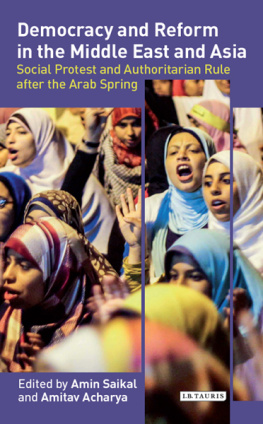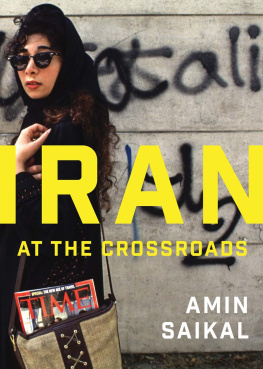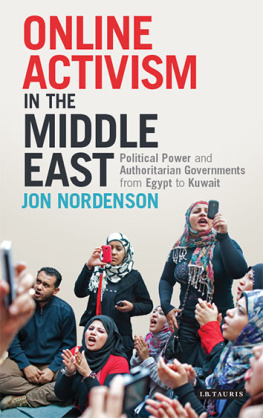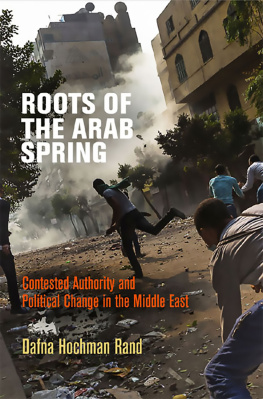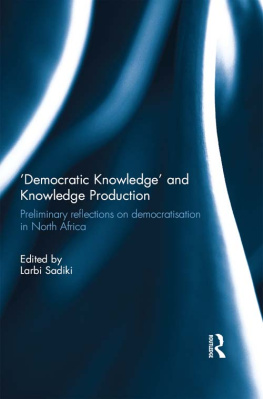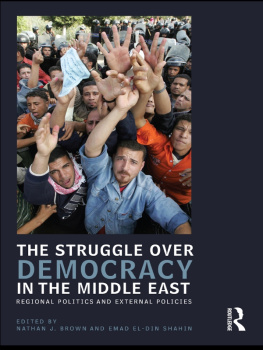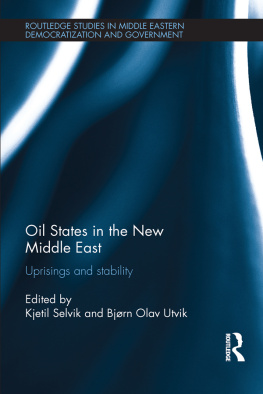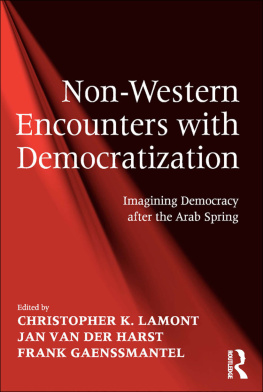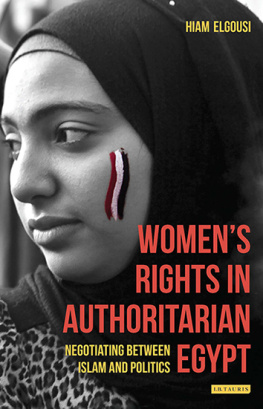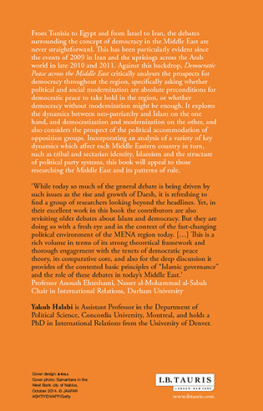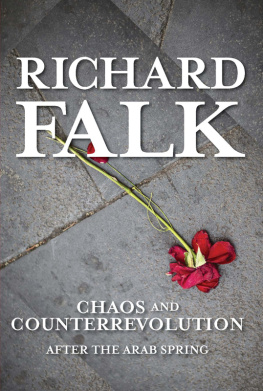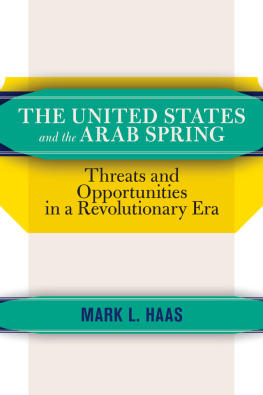Amin Saikal is Director of the Centre for Arab and Islamic Studies and Professor of Political Science at the Australian National University. He has been a visiting fellow at the University of Cambridge and Princeton University, as well as at the University of Sussexs Institute of Development Studies. He has also been a Rockefeller Foundation Fellow in International Relations. He was awarded the Order of Australia (AM) in 2006. He is the author of a number of works on the Middle East, Central Asia and Russia, including Islam and the West: Conflict or Cooperation? (2003); The Rise and Fall of the Shah: Iran from Autocracy to Religious Rule (2009); Modern Afghanistan: A History of Struggle and Survival (I.B.Tauris, 2012) and Zone of Crisis: Afghanistan, Pakistan, Iraq and Iran (I.B.Tauris, forthcoming).
Amitav Acharya is Professor in the School of International Service and UNESCO Chair in Transnational Challenges and Governance, American University, Washington, DC, having previously held professorships at the University of Bristol and York University, Toronto. His recent books include Whose Ideas Matter? (2009); Beyond Iraq: The Future of World Order (co-edited, 2011); Non-Western International Relations Theory (co-edited, 2010) and The Making of Southeast Asia (2011).
Published in 2014 by I.B.Tauris & Co. Ltd
6 Salem Road, London W2 4BU
175 Fifth Avenue, New York NY 10010
www.ibtauris.com
Distributed in the United States and Canada Exclusively by Palgrave Macmillan 175 Fifth Avenue, New York NY 10010
Copyright Editorial Selection and Introduction 2014 Amin Saikal and Amitav Acharya Copyright Individual Chapters 2014 Shahram Akbarzadeh, Alan Chong, Greg Fealy, Baogang He, Karima Laachir, Kirill Nourzhanov, Amin Saikal, Mohammad Selim, Ramesh Thakur, Trevor Wilson, Samina Yasmeen
The right of Amin Saikal and Amitav Acharya to be identified as the editors of this work has been asserted by them in accordance with the Copyright, Designs and Patents Act 1988.
All rights reserved. Except for brief quotations in a review, this book, or any part thereof, may not be reproduced, stored in or introduced into a retrieval system, or transmitted, in any form or by any means, electronic, mechanical, photocopying, recording or otherwise, without the prior written permission of the publisher.
Library of International Relations: 72
ISBN: 978 1 78076 806 9
eISBN: 978 0 85773 518 8
A full CIP record for this book is available from the British Library
A full CIP record is available from the Library of Congress
Library of Congress Catalog Card Number: available
Contributors
Amitav Acharya is the UNESCO Chair in Transnational Challenges and Governance at the School of International Service, American University, Washington, DC. Professor Acharyas most recent books include: Whose Ideas Matter: Agency and Power in Asian Regionalism (Cornell, 2009); Non-Western International Relations Theory: Perspectives on and Beyond Asia (as co-editor, Routledge, 2010); and The Making of Southeast Asia: International Relations of a Region . The Quest for Identity (Cornell and Singapore Institute of Southeast Asian Studies, 2011). He has contributed articles to leading academic and policy journals, and made many appearances in international media.
Shahram Akbarzadeh is Professor of Asian Politics (Middle East and Central Asia) at Melbourne University. He has an active research interest in the politics of Central Asia, Islam, Muslims in Australia and the Middle East. He is the author of Uzbekistan and the United States (Zed Books, 2005) and US Foreign Policy in the Middle East (with Kylie Baxter, Routledge, 2008). He has recently published an edited collection on Americas Challenge in the Greater Middle East (Palgrave Macmillan, 2011).
Alan Chong is Associate Professor at the S. Rajaratnam School of International Studies in Singapore. He has published widely on the notion of soft power and the role of ideas in constructing the international relations of Singapore and Asia. He is the author of Foreign Policy in Global Information Space: Actualizing Soft Power (Palgrave, 2007). His publications have appeared in The Pacific Review ; International Relations of the Asia-Pacific ; Asian Survey ; East Asia: An International Quarterly ; Politics, Religion and Ideology ; The Review of International Studies ; and the Cambridge Review of International Affairs. He is currently working on several projects exploring the notion of Asian international theory.
Greg Fealy holds a joint appointment as Associate Professor and Senior Fellow in the College of Asia and the Pacific, The Australian National University. He is the co-author of Joining the Caravan? The Middle East , Islamism and Indonesia (Longueville Media, 2005); Local Jihad: Radical Islam and Terrorism in Indonesia (Australian Strategic Policy Institute, 2005); and Zealous Democrats: Islamism and Democracy in Egypt, Indonesia and Turkey (Longueville Books, 2008). He is also co-editor of Soehartos New Order and Its Legacy (ANU Press, 2010); Expressing Islam: Religious Life and Politics in Indonesia (Institute of Southeast Asian Studies, 2008); and Voices of Islam in Southeast Asia: A Contemporary Sourcebook (Institute of Southeast Asian Studies, 2006).
Baogang He is the author of The Democratization of China (Routledge, 1996); The Democratic Implication of Civil Society in China (Macmillan and St. Martin, 1997); Nationalism, National Identity and Democratization in China (with Yingjie Guo, Ashgate, 2000); Balancing Democracy and Authority: An Empirical Study of Village Election in Zhejiang (with Lang Youxing, Central China Normal University Press, 2002); Multiculturalism in Asia (with Will Kymlicka, Oxford University Press, 2005).
Karima Laachir is a lecturer in Literary and Cultural Study in the School of Oriental and African Studies, University of London. She is currently a visiting fellow at the Centre for Arab and Islamic Studies (CAIS). Her research interests include comparative postcolonial literature (Arabophone, Francophone and Anglophone); Arabic popular culture; literature of the North African diaspora; and Islamophobia and ethnic minorities in Europe, with a specific focus on France. She is co-editor of Resistance in Contemporary Middle Eastern Cultures: Literature, Cinema and Music (Routledge, 2012). Her forthcoming book is on North African Diaspora in France and the Politics of Cultural Production (2013).
Kirill Nourzhanov is a senior lecturer at CAIS. He has an MA from Moscow State University and a PhD from the ANU. His main academic interests include politics, international relations and conflict resolution in contemporary Central Asia. His recent publications include Mackinder on the Roof of the World: Contemporary Geopolitics of Tajikistan, in Nick Megoran and Sevara Sharapova (eds), Halford Mackinder and the International Relations of Central Asia (Columbia University Press, 2012, pp. 10220); Omnibalancing in Tajikistans Foreign Policy: Security-Driven Discourse of Alignment with Iran, Journal of Balkan and Near Eastern Studies 14(3) (2012): pp. 36381; and International Democratic Norms and Domestic Socialization in Kazakhstan: Learning Processes of the Power Elite, in Emilian Kavalski (ed.), Stable Outside, Fragile Inside? Post-Soviet Statehood in Central Asia (Ashgate, 2010, pp. 10732).
Amin Saikal is Professor of Political Science and Director of CAIS (the Middle East and Central Asia) at the Australian National University. His publications include: American Democracy Promotion in the Changing Middle East: From Bush to Obama (as co-editor, Routledge, 2013); Modern Afghanistan: A History of Struggle and Survival (as editor, I.B.Tauris, 2012); The Afghanistan Conflict: Australias Role (as editor, Melbourne University Press, 2011); The Rise and Fall of the Shah: Iran from Autocracy to Religious Rule (Princeton University Press, 2009); and Islam and the West: Conflict or Co-operation? (Palgrave Macmillan, 2003). Professor Saikal has also published many articles in international journals, as well as numerous feature articles in major international newspapers, including the International Herald Tribune , the New York Times , the Wall Street Journal, the Guardian and the Globe and Mail . He is also a frequent commentator on radio and television.

